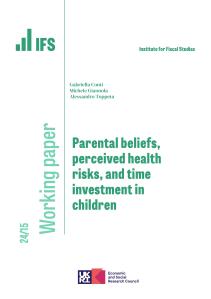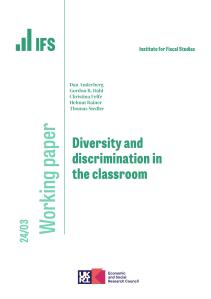Notwithstanding the expansion of higher education across the OECD, there continues to be concern about the levels of participation amongst those from disadvantaged backgrounds. In response to this, a new form of financial support for students from low-income families, the 'opportunity bursary', was introduced for a limited period in England from 2001/02. Surveys of two cohorts of opportunity-bursary applicants were carried out and these suggested possible psychological, behavioural and economic impacts. Fewer opportunity-bursary recipients than non-recipients reported that part-time work had interfered with their studies and more reported that the bursary had made them less worried about meeting the costs of going to university. There was some evidence that the scheme led to increased retention in the first year of university study; it also appeared to lead to lower levels of debt, in particular bank overdrafts or credit card debt.









